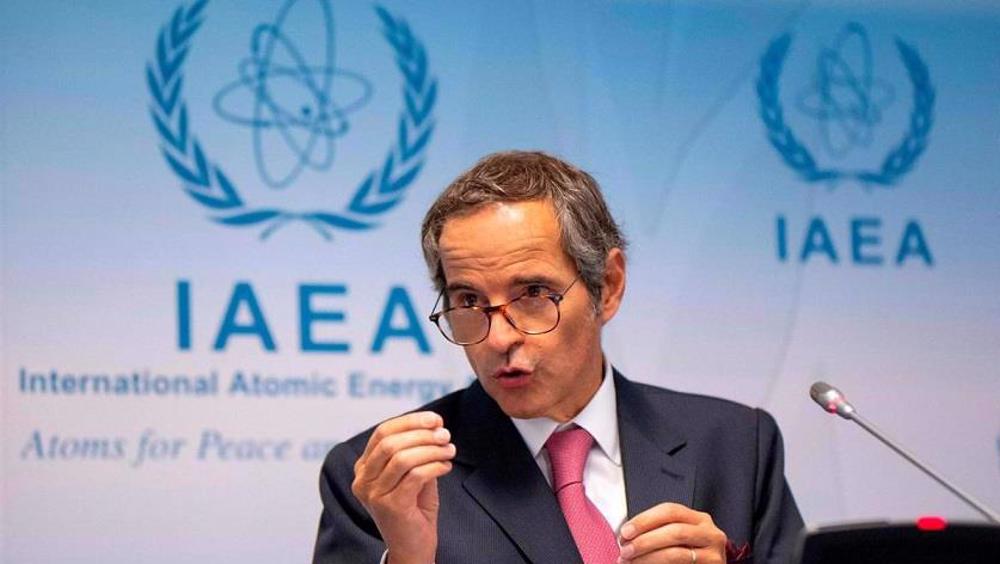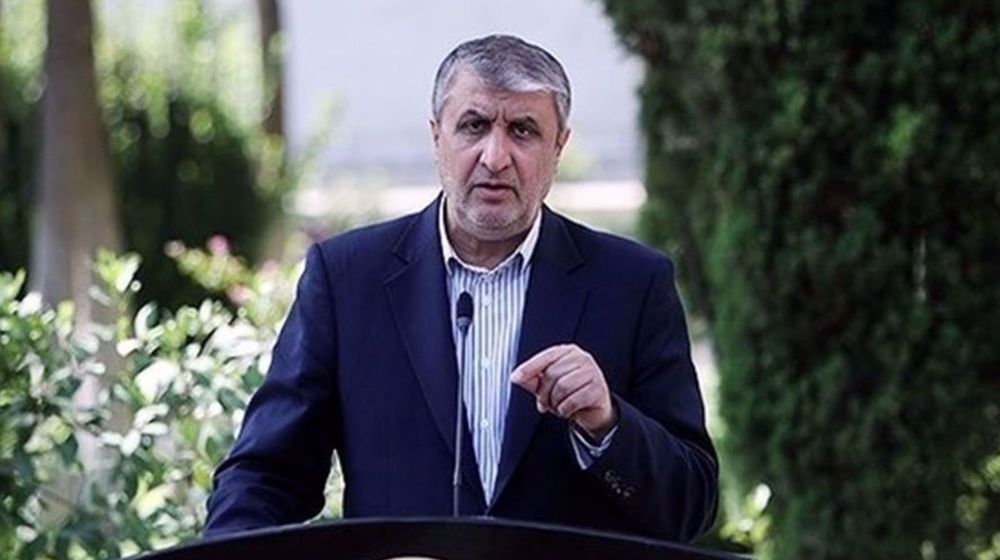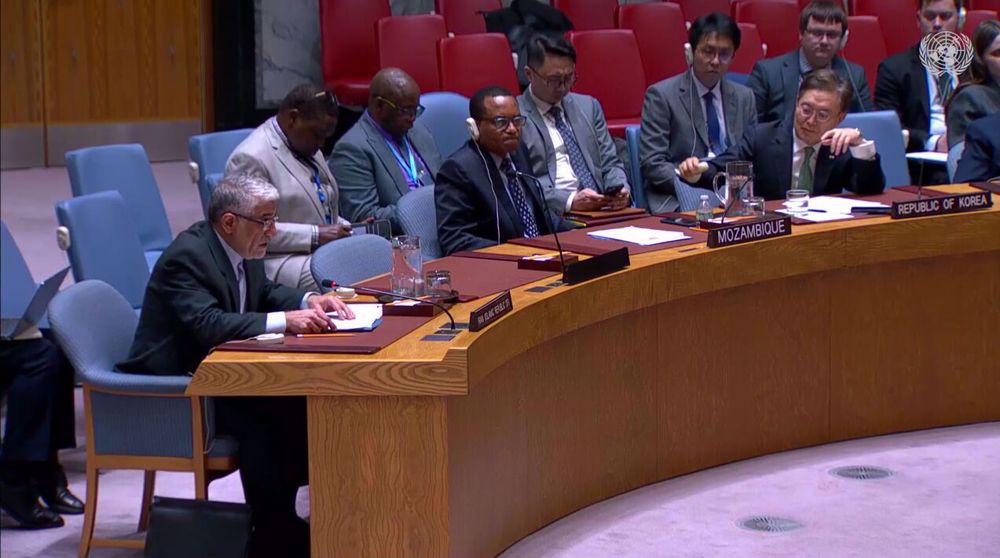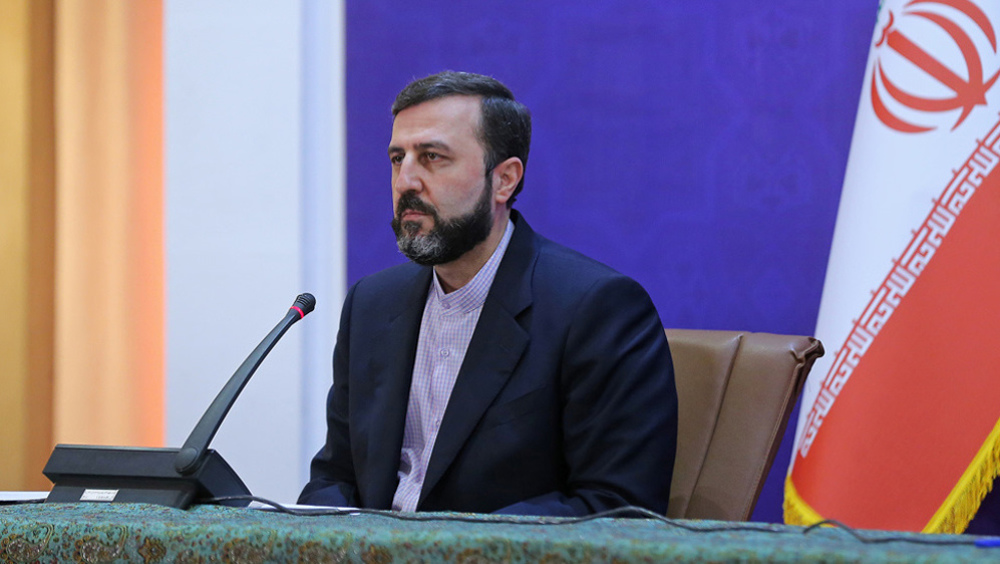Technical talks with Iran ongoing in parallel to Vienna negotiations to revive JCPOA: IAEA chief
The director general of the International Atomic Energy Agency (IAEA) says talks on the technical aspects of Iran’s peaceful nuclear program are going on in the Austrian capital, Vienna, in parallel to political talks on the revival of a landmark nuclear deal clinched by Tehran and world powers in 2015.
"We are in the midst of technical talks with Iran parallel to the ongoing political talks in the Austrian capital," Rafael Grossi told reporters on Monday.
Representatives of Iran and the other five signatories to the nuclear agreement -- Britain, France, Germany, Russia and China -- have been engaged in the Vienna process since early April with the purpose of finding ways to bring the United States back to the JCPOA and prepare the ground for its full implementation.
They wrapped up another round of talks in Vienna on Friday apparently without any breakthrough, with both sides agreeing to speed up the diplomatic process.
Under former president Donald Trump, the US withdrew from the JCPOA and initiated a “maximum pressure” policy against Iran, prompting Tehran to take remedial measures by gradually reducing its nuclear commitments under the deal.
Besides re-imposing the anti-Iran sanctions lifted by the JCPOA, the US targeted the Iranian nation with several sets of additional bans under new pretexts and labels.
Now, with Trump gone, the new US administration under President Joe Biden says it seeks to rejoin the deal, but it has so far refused take meaningful action to regain Iran’s trust and come back to compliance.
In excessive demand, the US says Iran should first resume the nuclear commitments it has suspended in resorting to its legal retaliation rights defined in Article 26 of the agreement before Washington lifts the sanctions. Tehran has firmly rejected that demand, saying it is up to the US, as the party that abandoned the JCPOA, to take the first back toward the deal by removing all the anti-Iran sanctions practically and verifiably.
In his Monday remarks, Grossi pointed to a three-month deadline given to the IAEA by Iran based on a temporary technical understanding reached between the two sides in February and said "patience" is required to achieve outcomes from the ongoing political talks in Vienna.
"But in the event that a political agreement is not reached before May 20, I will start direct talks with the Iranians to ensure that the inspections will be completed," the UN nuclear agency chief added.
In February, Iran halted its voluntary implementation of the Additional Protocol that allowed the IAEA to carry short-notice inspections at its nuclear sites.
Later in February, Iran and the IAEA reached a technical understanding under which Iran continued to keep the camera footage at its nuclear sites for up to three months in a goodwill gesture in support of diplomacy, waiting to see whether the other parties to the JCPOA can manage to bring the US back into full compliance with the deal.
That deadline would come to an end on May 21, while the prospects of reaching an agreement to bring Washington into compliance with the JCPOA look uncertain.
Deputy Foreign Minister Abbas Araqchi, who is the head of the Iranian delegation to the Vienna talks, told NHK on Friday that the Islamic Republic may consider extending the deal with the IAEA on inspections of its nuclear sites.
Vienna negotiations taking time but constructive: German FM
German Foreign Minister Heiko Maas also said on Monday that time is of the essence in the Vienna talks but emphasized that despite lengthy negotiations, they are conducted in a good atmosphere.
"The negotiations are tough and laborious but all participants are conducting the talks in a constructive atmosphere," Maas said on the margins of a meeting with his European Union counterparts in Brussels.
"However, time is running out. We aim for the full restoration of the Iran nuclear deal," he added.
Vienna talks on JCPOA revival moving to crucial stage: EU's Borrell
EU foreign affairs chief Josep Borrell also on Monday expressed his optimism about the Vienna talks, saying the negotiations are moving into a crucial stage and the next few weeks will be critical to saving the nuclear deal.
"I am optimistic, there is a window of opportunity that will stay open for a couple of weeks, (until) end of the month," Borrell, who is chairing the talks in Vienna, told a news conference.
"But a lot of work is needed, time is limited and I hope that the negotiations will enter in a phase of nonstop (talks) in Vienna," he added after a meeting of EU foreign ministers.
Israel indicts two settlers over suspected spying for Hezbollah
Iran: US airstrikes on Yemen war crimes, violation of international law
Yemeni armed forces down F-18 fighter jet, repel US-UK attack: Spokesman
Iran warns against US-Israeli plot to weaken Muslims, dominate region
VIDEO | Public uproar in US against Israeli regime
‘Ghost town’: 70% of Jabalia buildings destroyed by Israel
Mother’s Day: Sareh Javanmardi’s inspiring journey as Paralympic champion and mother
Russia downs over 40 Ukrainian drones as Putin vows 'destruction' on Kiev










 This makes it easy to access the Press TV website
This makes it easy to access the Press TV website